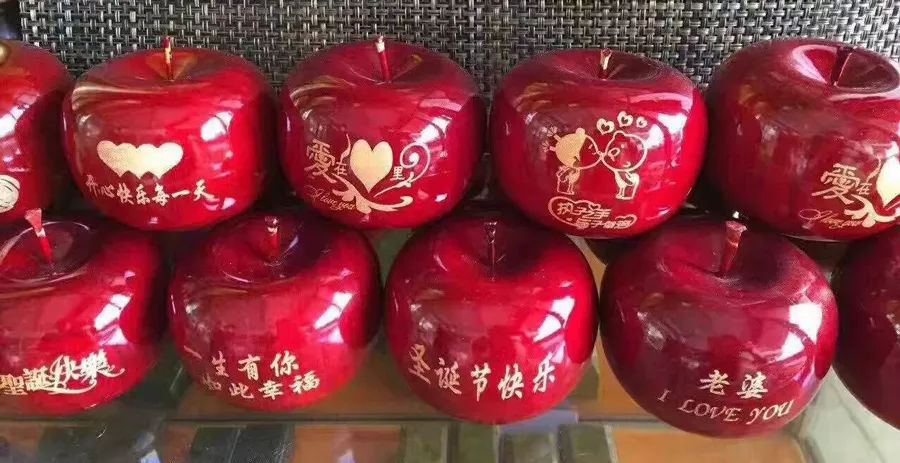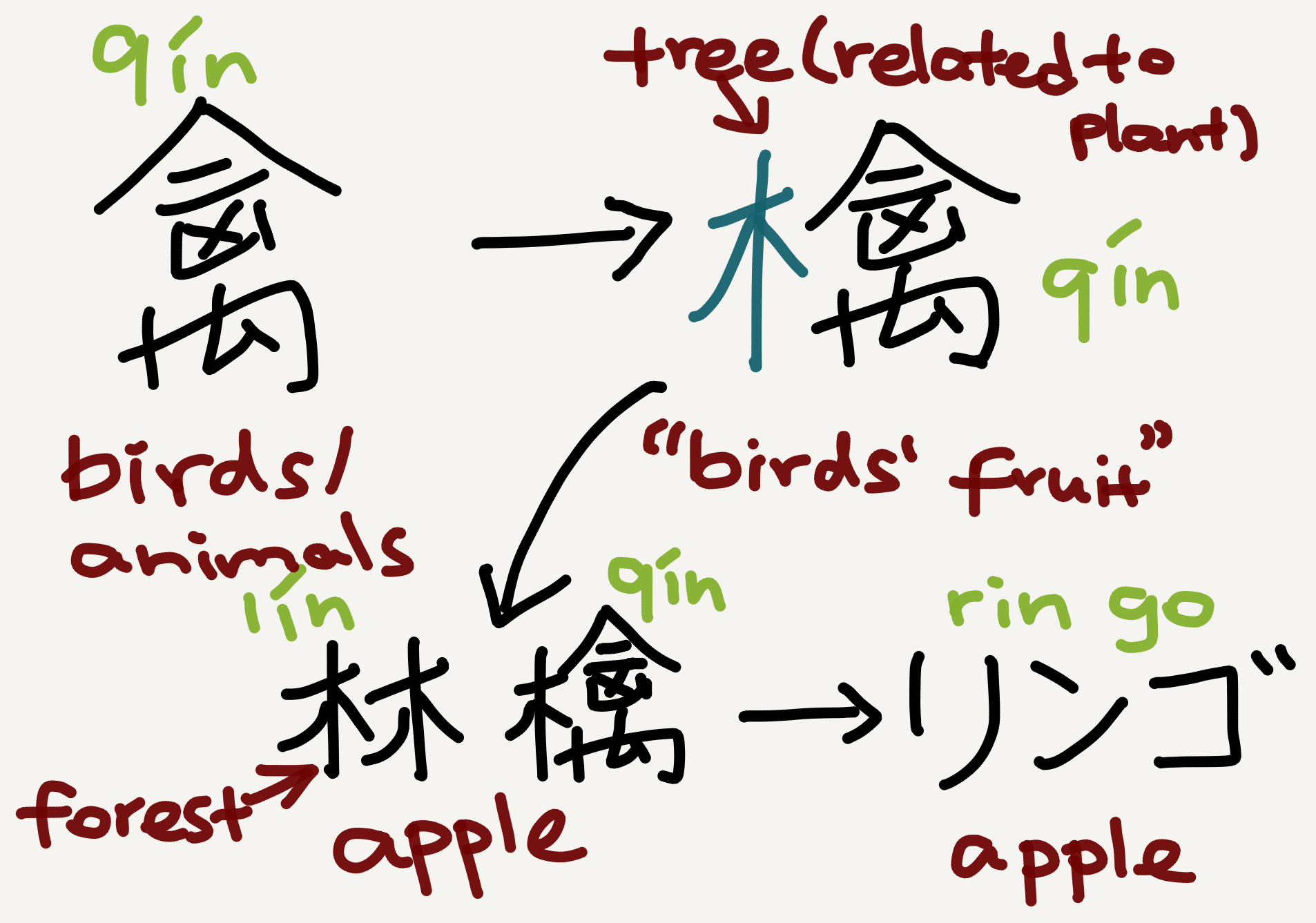Many years ago, probably when I was in grade six or seven, I accidentally overheard the following snippet from a family conversation. The speaker was the wife of one of my elder cousins and the theme was my then three-year-old nephew:
The other day when I picked him up from the kindergarten, he told me, “mom, today I learned English!” I asked, “What did you learn?” “Apple,” he answered.
I haven’t seen my nephew for ages, and perhaps he’s already taller than me (which isn’t a hard goal to achieve considering how tall my elder cousin is😆). But why do I still remember the above trifling conversation? Because of “apple”!
We learn to say “apple” before everything else!
Not sure if it’s just my illusion—please let me know if you have different opinions—but I have the impression that apple is among the very first English words children get to learn in China, either in school or at home. In my own experience, I clearly remember that I had already known apple for a long time by the time when I finally learned to say sorry and thank you. This is certainly not the case for first-language acquirers, whose first words are usually mama, papa, or some other absolutely useful expressions for survival. Why in the world should toothless infants want to say apple?
Maybe apple is taught early in China because it begins with an a, which happens to be the first letter in the English alphabet? That’s plausible, though we could further ask why among all words beginning with an a (e.g., aunt, arm, angel, America) it’s apple that gets the representative privilege.
Also, I realize that even when I try to learn other languages—languages where the word for “apple” doesn’t begin with an a (e.g., Spanish manzana) or languages with no alphabetic scripts at all (e.g., Korean 사과 sa-gwa)—I still first learn to say “apple,” before any kind of grammar learning kicks off. It seems to have become second nature to me to first learn to say “apple” when learning a new language, which sort of feels like an “appetizer.”
While my “second nature” may just be a symptom of OCD, the fact that English teachers in China tend to teach apple early on is an objective observation. I guess the reason(s) for that might be among the following:
- Apple begins with an a.
- The pronunciation of apple doesn’t contain any difficult phoneme.
- Apples are a most common type of fruit and therefore easy for teachers to think of as an example.
- Apples are very healthy and teachers want to present healthy examples.
- Apples are consumed a lot, so there are lots of opportunities for children to practice the word.
- Apples are mouth-watering and can help teachers get children’s attention.
- The concept of apple is dully safe and won’t cause teachers any trouble.
We love apples!
Anyway, people worldwide love apples, which is reflected in our languages. In English, for example, there’s the famous proverb “An apple a day keeps the doctor away.” (I actually stopped eating apples for a while when I was writing my doctoral dissertation.😂) Jane Austen once also said “Good apple pies are a considerable part of our domestic happiness.” And don’t forget the sweetest cliché that someone you wholeheartedly adore is “the apple of your eye.”🍎👁
Outside the English-speaking world, the Japanese Fuji apples have been deeply beloved of Asian people, and in China sending apples to friends on Christmas Eve has become a symbol of best wishes and good luck, since the Chinese word for “apple” 蘋果 píng-guǒ (more exactly its first syllable) is homophonous with (the first syllable of) the word for “safe and sound, peaceful” 平安 píng-ān. The fashion has caught on so well (thanks to commercialization) that even my mother, who lives in a tiny village and isn’t religious at all, tells me to eat an apple ahead of Christmas every year.😇 She usually says:
今天是平安夜,吃個蘋果,平平安安!
Today is “Peaceful Night” (the Chinese name for Christmas Eve). Eat an apple and be safe and sound!

Apples are not only delicious and healthy as such but also appear in various recipes either as a main or a side ingredient. Last year I fell in love with McDonald’s apple pie, which is a superb library break snack on a cold winter night. And recently I’ve discovered a kind of “apple sausage” in Sainsbury’s, which tastes good as well.
How to say apple in your language?
Apples have various names in European languages, such as English apple, Spanish manzana, French pomme, and Russian яблоко. They also have various names in Asian languages, such as Mandarin 蘋果 píng-guǒ, Korean 사과 sa-gwa, Japanese リンゴ rin-go, and Vietnamese táo tây. Interestingly, all these names have a Chinese origin—except the current Chinese name itself, which entered the language from Sanskrit along with Buddhism in Tang Dynasty. Below are the Chinese-character versions of the three Chinese-origin names:
- Korean: 사과 sa-gwa 沙果 (sa-fruit)
- Japanese: リンゴ rin-go 林檎 (forest birds’ fruit)
- Vietnamese: táo tây 棗西 (Western jujube)
In particular, both Korean 沙果 and Japanese 林檎 directly come from Middle Chinese, while Vietnamese 棗西 (or 西棗 in the Chinese word order) is a creative combination of two Chinese characters, with their literal meanings preserved. I’m not sure about the etymology of 沙果—perhaps 沙 merely represents the sound of the fruit name—but 林檎 is so called because forest birds all love apples, or at least that’s what Chinese dictionaries say. The two characters 林 and 檎 literally mean “forest” and “Qin-fruit” (i.e., apple), where the character for Qin-fruit is just the character for birds 禽 equipped with a radical 木 ‘tree’.

Apart from 沙果 and 林檎 there are still other names for apples in Middle Chinese, such as
- 柰 nài (a character specially created for the fruit),
- 花紅 huā-hóng ‘flower-red’ (so named because the fruit has red/pink flowers),
- 文林郎果 wén-lín-láng-guǒ ‘the fruit of Wen Lin Lang [an official title]’ (so named because allegedly an official in Tang Dynasty treated Emperor Gaozong to some delicious apples and thereby got the title Wen Lin Lang),
and so on. However, in Modern Chinese these alternative names have come to mean a different type of fruit (malus asiatica or “Chinese pearleaf crabapple”; see this page for more historical details if you can read Chinese).
Takeaway
In sum, apples are a very beloved type of fruit not only dietarily but also linguistically. Their health-boosting effects are widely recognized, and their names are constantly being used as examples in foreign language teaching (at least in China). There really aren’t any reasons to dislike or despise apples. So I think they definitely live up to the fashionable title “the fruit of peace” 平安果!🍎🍎🍎



Leave a comment